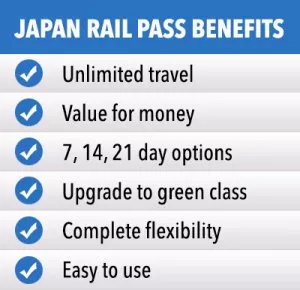Japan is one of the most fascinating countries in the world. It has a rich history and culture that attracts millions of people from all parts of the globe, and offers a wide array of experiences that many would say are something that you would only encounter there.
Before visiting, it might be good to know some of the many unique aspects and qualities of Japan that you should expect to encounter or come across once you get there. Below are six things about Japan that you might want to know before visiting:
1. Tipping is not a thing
Unlike the United States, Japan does not have a tipping culture. Customers are not required to leave tips when they eat at restaurants, stay at hotels, or receive any kind of service. You have to pay only the exact amount that you owe.
If you try to give a waiter, housekeeping staff, or a taxi driver something extra, you will just get the excess amount as change, or you will have someone running after you trying to hand the extra money back, thinking that you accidentally miscalculated or overpaid them.

2. You must take off your shoes when going indoors
When entering somebody’s home in Japan, you have to remove your shoes and leave them by the entrance hall or genkan. Then, you slip on a pair of slippers provided before proceeding to the main part of the house. This is done to keep the floors clean.
Taking off of shoes is also observed when going inside tourist attractions and some business establishments.
For instance, to explore the inside of Himeji Castle, Matsumoto Castle, and some temples, visitors have to take their shoes off by the entrance and are given plastic bags in which they store their footwear in and carry throughout the tour.
Some dining establishments also ask their guests to take their shoes off before heading to their tables. Restaurants that offer horigotatsu, which is a type of seating with a low table and an opening on the floor for your legs, require guests to leave their shoes by the entrance or next to their table before taking a seat.

3. The trains are rarely late
Japan’s train network is famous worldwide for being efficient and on time. In a recent report posted on the JR Central website, the company-operated trains have an annual average delay of only 0.9 minutes per operational train. And, usually, these delays are a result of earthquakes, bad weather, and other events that are out of their control. Get your JR Pass to enjoy travelling around Japan!
And, in cases of delay, the affected passengers can ask for delay certificates from the different railway companies as valid proof to present to their teachers or superiors for showing up late for school or work.

4. Convenience stores are more than just places where you can buy food and drinks
Japanese convenience stores are multi-purpose. In addition to a wide selection of the usual affordable rice meals, bento, ramen, sweets, snacks, bottled water, beer, soda, coffee, and juices, they also offer various services, such as bills payments, copier and fax machines, ATM, and more.
Moreover, these convenience stores have ticket machine terminals where you can buy tickets to theme parks like Disneyland and Universal Studios, the Ghibli Museum, and various other sites and attractions. You can also purchase tickets to concerts and shows of your favorite music artists, as well as tickets to theatre musicals and stage plays. They also accept payments for utility bills.
5. There are more than five million vending machines scattered across the country
There are approximately 5.5 million vending machines around Japan. A lot them sell all sorts of drinks — from bottled water and softdrinks to tea and coffee. Some even sell beer, ice cream, chocolates, chips, and a variety of other snacks.
Found at almost every street corner in Japan, they are common around temples, museums, shrines, and other tourist attractions. There is even one on the summit of Mount Fuji!

6. Eating or drinking in public is seen as rude
Eating or drinking while on a train or while walking is considered rude in Japan. Do not munch on your sandwich or drink your to-go coffee while fighting your way through the crowds in Shibuya, or while on the Yamanote Line train. What if you drop your food or spill your drink on someone?
If you have food and drinks to consume, you should hold onto to them until you find an appropriate place to eat and drink them, such as a park bench, a train station waiting area, or next to a vending machine.


















